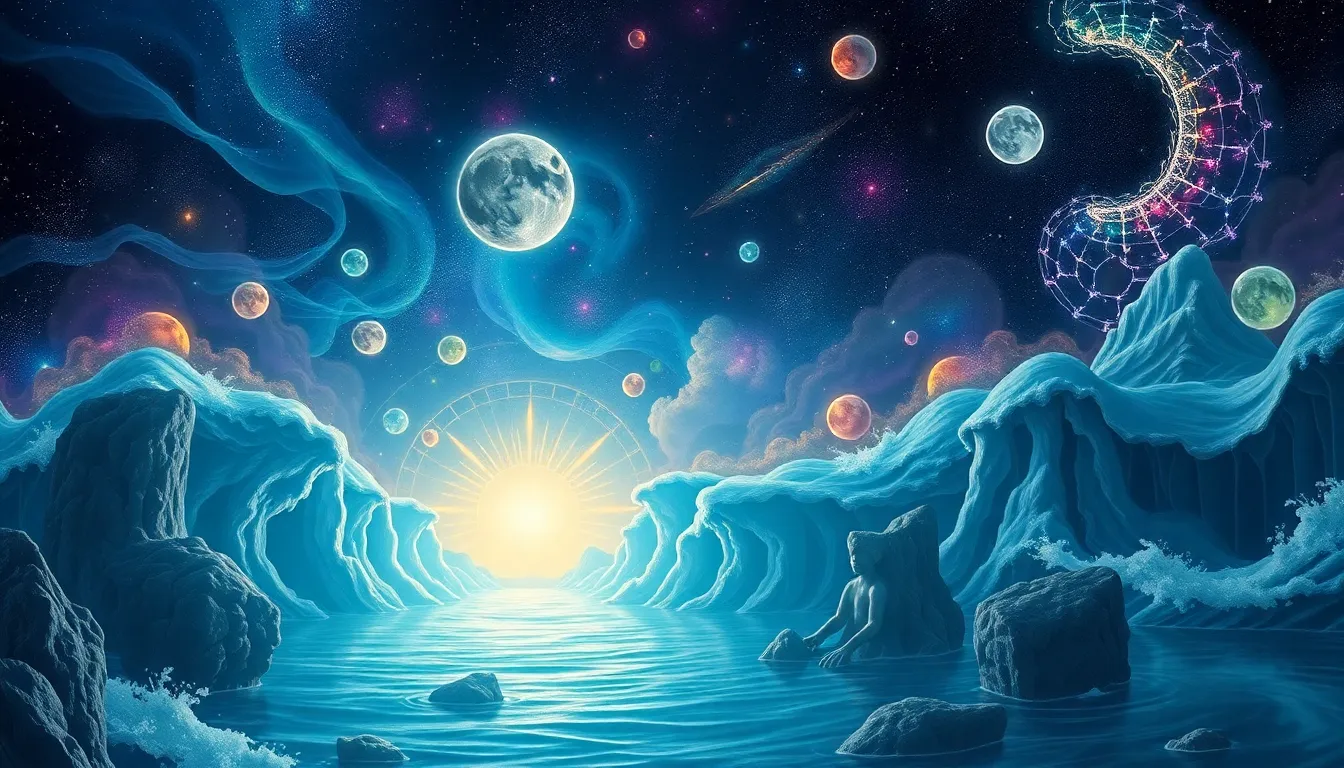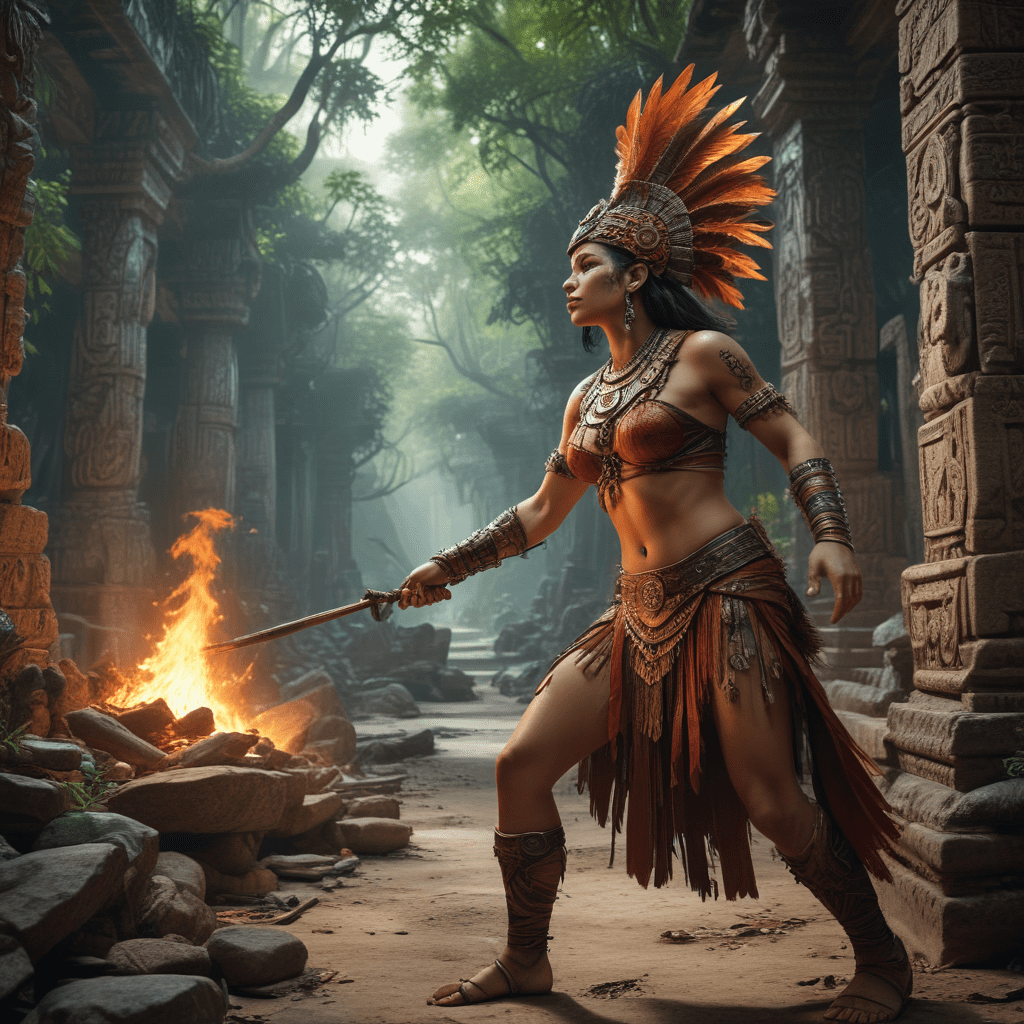The Cosmic Tides: How Creation Myths Reflect Change
1. Introduction: The Interplay of Myth and Change
Creation myths serve as foundational narratives in human culture, explaining the origins of the world and humanity. These stories are not merely relics of ancient times; they reflect the values, beliefs, and experiences of the societies that tell them. The significance of change is central to these myths, underscoring humanity’s ongoing quest to understand transformation in both the cosmos and the self. This article explores how creation myths encapsulate the essence of change, showcasing their relevance across different cultures and eras.
2. Understanding Creation Myths: A Cultural Framework
Creation myths can be defined as traditional stories that articulate the origins of the universe, life, and the human condition. They often possess distinct characteristics, including:
- Divine beings or supernatural forces as creators
- Symbolic elements that represent fundamental truths
- A narrative structure that conveys moral lessons
These myths play a vital role in various cultures, acting as a lens through which societies interpret their existence and purpose. They provide insights into societal values and beliefs, revealing how different communities understand their place in the universe and their relationships with nature.
3. The Nature of Change: Cosmic and Human Perspectives
Change is a fundamental aspect of existence, both on a cosmic scale and within human experiences. In the universe, change manifests through:
- Cosmic events such as the birth and death of stars
- Evolutionary processes that shape life on Earth
Creation myths often reflect these cosmic changes, mirroring human experiences of transformation. They frequently portray change as cyclical, emphasizing themes of renewal, destruction, and rebirth. This cyclical nature resonates deeply with the human experience, illustrating that change is an inherent part of life.
4. Case Study: The Cosmic Tides in Indigenous Creation Stories
Indigenous creation myths offer profound insights into the relationship between humanity and the cosmos. For example, many Indigenous stories depict the Earth as a living entity that undergoes constant change. These myths often include:
- Creation through natural elements
- Adaptation to environmental shifts
- Spiritual connections with celestial bodies
In these narratives, nature and the cosmos are not separate from human existence; they are integral to understanding identity and community. The themes of change and adaptation reflect the lived experiences of Indigenous peoples, who have navigated environmental transformations throughout history.
5. Comparative Analysis: Eastern vs. Western Creation Myths
The exploration of Eastern and Western creation myths reveals both differences and similarities in how change is interpreted. Eastern myths, such as those found in Hinduism and Buddhism, often emphasize:
- The cyclical nature of existence (e.g., samsara)
- The interconnectedness of all beings
In contrast, Western myths, influenced by Judeo-Christian traditions, tend to focus on:
- Linear progression from creation to an eventual end
- A more dualistic view of good and evil
These divergent perspectives reflect the philosophical and religious contexts that shape their narratives, illustrating how culture influences the understanding of change.
6. The Role of Nature in Creation Myths and Change
Natural elements—water, earth, fire, and air—are often central to creation myths, symbolizing change and transformation. Each element carries specific meanings:
- Water: Represents life, cleansing, and renewal.
- Earth: Symbolizes stability, nourishment, and grounding.
- Fire: Signifies destruction, transformation, and energy.
- Air: Represents freedom, spirit, and communication.
These elements illustrate the dynamic interplay of creation and destruction, embodying the essence of change across various cultures. For example, in many African myths, water is revered as the source of life and a transformative force, while in Native American stories, the Earth is celebrated as a sacred entity that fosters growth and change.
7. Modern Interpretations: Creation Myths in Contemporary Society
Creation myths remain relevant in today’s world, as they provide frameworks for understanding ongoing changes in society. Modern narratives often reflect contemporary issues, such as:
- Technological advancements
- Climate change and environmental crises
- Social transformations and cultural shifts
The shift in storytelling formats—from literature to film and art—has allowed these ancient narratives to evolve. Contemporary adaptations often incorporate modern themes, bridging the gap between past and present and highlighting the continuity of change.
8. Psychological Insights: The Impact of Myths on Human Behavior
The psychological significance of creation myths is profound, as they shape identity and collective consciousness. Myths provide:
- A sense of belonging and cultural identity
- Frameworks for understanding personal and societal change
- Tools for coping with uncertainty and adversity
Through storytelling, individuals can process their experiences and emotions, finding meaning in the chaos of change. This psychological function underscores the enduring power of myths in human behavior and society.
9. Future Perspectives: Evolving Myths in a Changing World
As the world undergoes rapid changes—such as climate change and societal shifts—creation myths are likely to evolve in response. New narratives may emerge, reflecting:
- The experiences of marginalized communities
- Technological advancements and their impact on humanity
- Global challenges and collective responses
While embracing new myths, it is crucial to preserve traditional narratives, ensuring that diverse voices and experiences continue to inform our understanding of change.
10. Conclusion: Embracing Change Through Mythological Lenses
Creation myths offer invaluable insights into the nature of change, connecting us to our past while guiding us into the future. They reflect the cosmic tides of existence, illustrating how cultures interpret transformation and adaptation. By embracing these narratives, we can better navigate the complexities of change in our contemporary world, recognizing that myths are not just stories of the past, but living frameworks that shape our understanding of existence.



